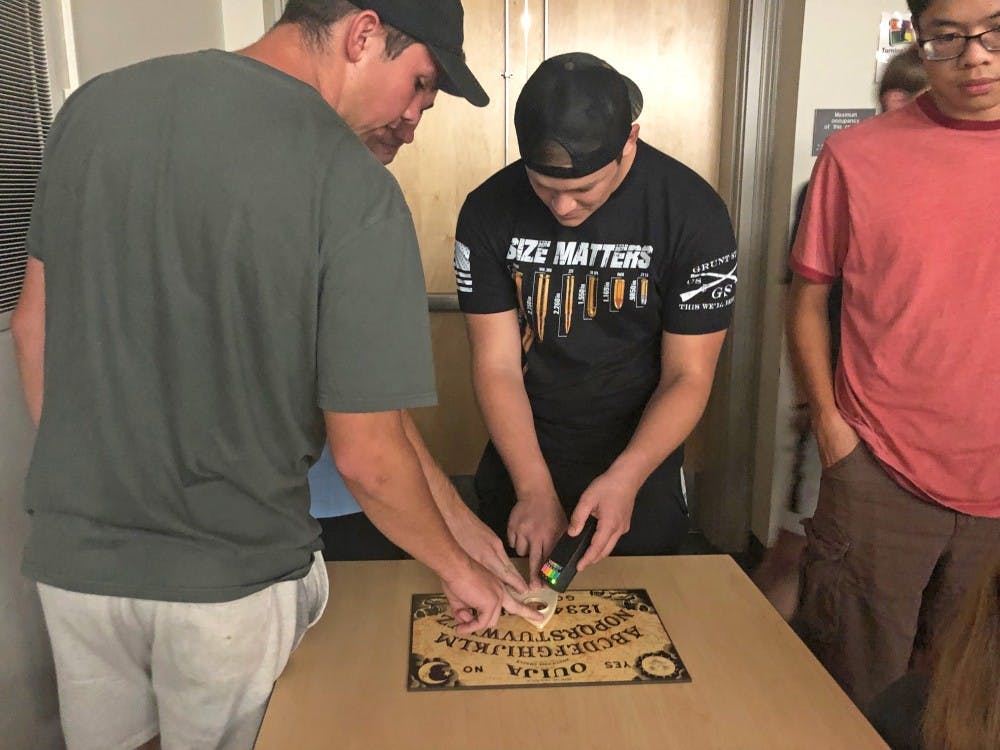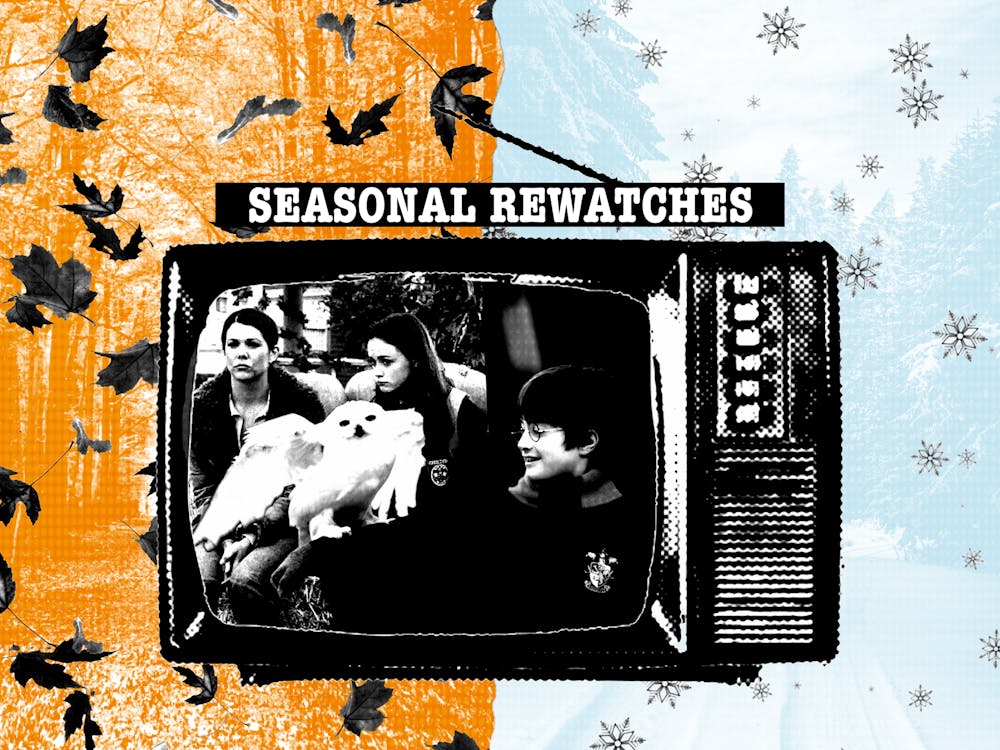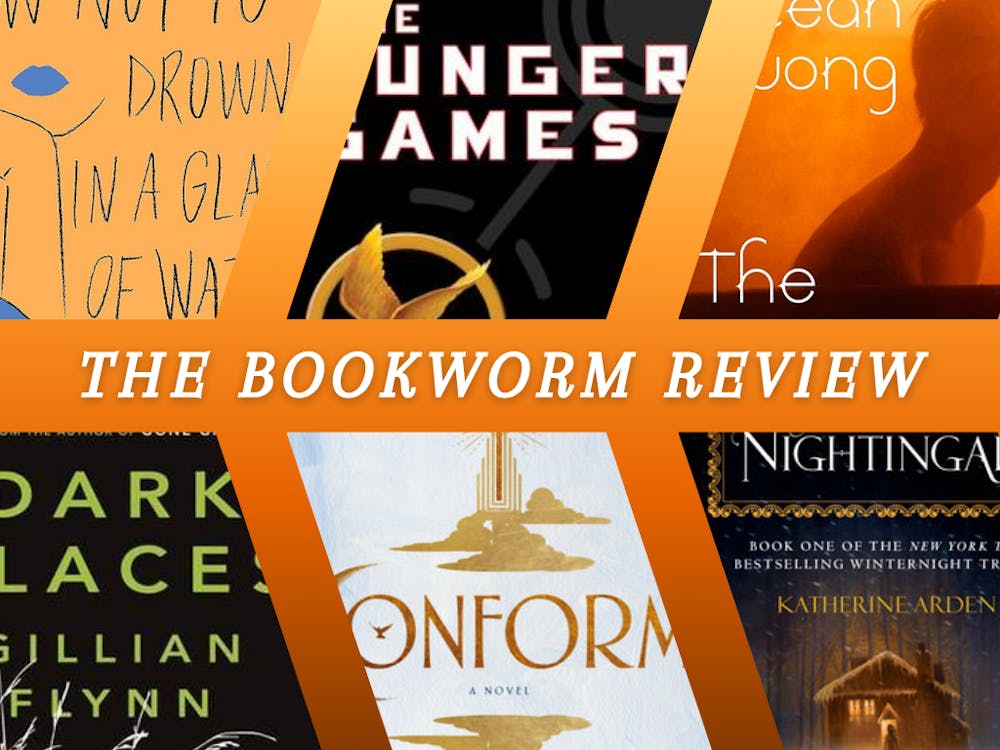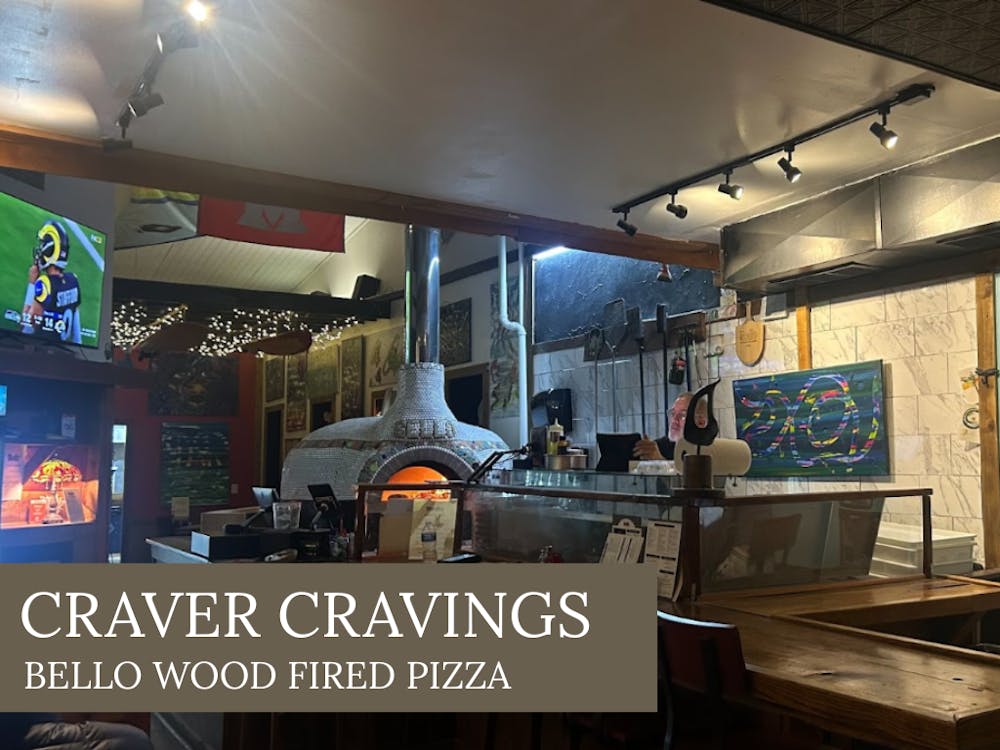Tarot cards. Rune stones. Electronic voice phenomenon recorders. A Ouija board.
These items and more lay scattered across a table in the front of Upham 002, placed there by Jeb Card. The archeologist and assistant teaching professor brought this equipment in for his 5o students to examine and dabble with.
Exercises like these are typical on a Monday afternoon in ATH 190A: Investigating the Paranormal. This anthropology sprint course challenges students to apply scientific and cultural approaches to the everyday myths and legends we’ve always wondered about: Atlantis, Bigfoot, Mothman and more. In just six weeks, students will learn not only how to identify and research a complex paranormal phenomenon, but also how they’d go about solving the mystery behind it.
Miami started offering this course in fall of 2018. For that semester, only 24 spots were available, and Card created a narrower experience for students, guiding them to actually solve the mystery of Bigfoot by conducting experiments, studying historical records and creating films to study the creature’s biomechanics. But for its second time around, Card decided the course should focus on more practical skills that students can apply to their everyday lives.
“I’m trying to build up their critical thinking ideas,” Card said. “So, if you were given a moderate amount of research money, what would you really do? And I don’t mean what would you do to get on TV — what would you really, honestly do?”
Several students taking the one-credit class are first-years who either need extra credit hours or wanted to add a fun, interactive course to their schedule. First-year political science student Jett Young took the course under the recommendation of his academic advisor.
“I am just taking it for fun, but it's going to teach us to ask questions from a different perspective, and that’s always good,” Young said.
On the other hand, junior anthropology major McKenna McGraw has taken classes with Card before, and she figured this would be a cool way to gain credit toward her major.
“It's interesting because it's a different take — it’s looking into the cultural reception of the paranormal,” McGraw said. “Just how myths and stories and stuff circulate through public consciousness.”
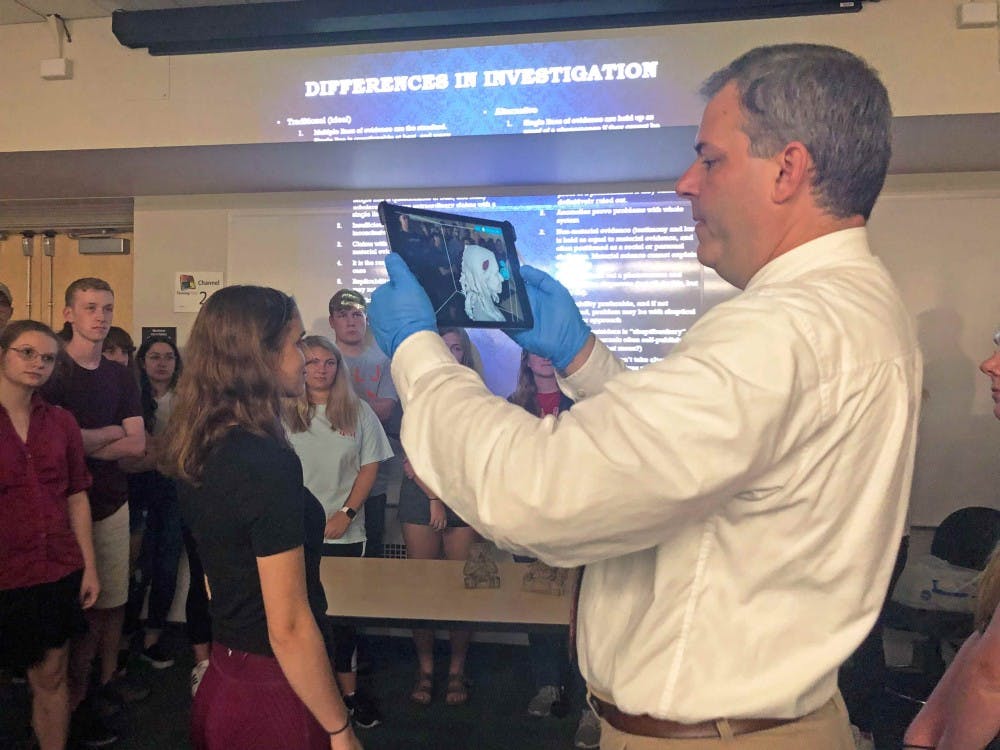
Already this semester, in addition to practicing using paranormal investigative equipment, students have learned about the scientific and cultural origins of the Atlantis myth, which is related to the Lost Continent of Mu in the middle of the Pacific Ocean. Card brought in four compressed volcanic artifacts (supposedly from the Lost Continent) along with “legitimate” artifacts, challenging students to determine how an artifact can feel “real” or different from a fraudulent object.
“I want them to become more skeptical about a lot of things,” Card said. “If somebody says something like, ‘This thing is true, isn't it?’ Well, why? What's the basis of it? Why are they saying that? Critical inquiry is an incredibly important life skill.”
Enjoy what you're reading?
Signup for our newsletter
For the last few sessions, the class will study cryptozoology in relation to colonialism, UFOs and the national security state and how all of the class topics together form a Paranormal Unified Field Theory. The theory contemplates the relationship between paranormal phenomena, institutions and social trust, and it will stand as the basis of students’ final project.
Students will have to construct a small grant proposal, as if they were legitimately seeking funds for an investigation into one of the weird myths surrounding the Ohio Valley. They’ll have several myths to choose from including Mothman, the Kentucky goblins, the Loveland Frogmen, various haunted castles and the possibility of UFOs hidden at Wright-Patterson Air Force Base.
The course and final project may focus a lot on the scientific side of the paranormal, but Card doesn’t want students to forget that all myths have cultural roots as well.
“That’s one of the big lessons in anthropology: How can you develop an anthropological perspective?” Card said. “One where you look at what other people value and don't just discount it because it’s not what you value, and figure out why they value it. That’s an incredibly important worldview.”

